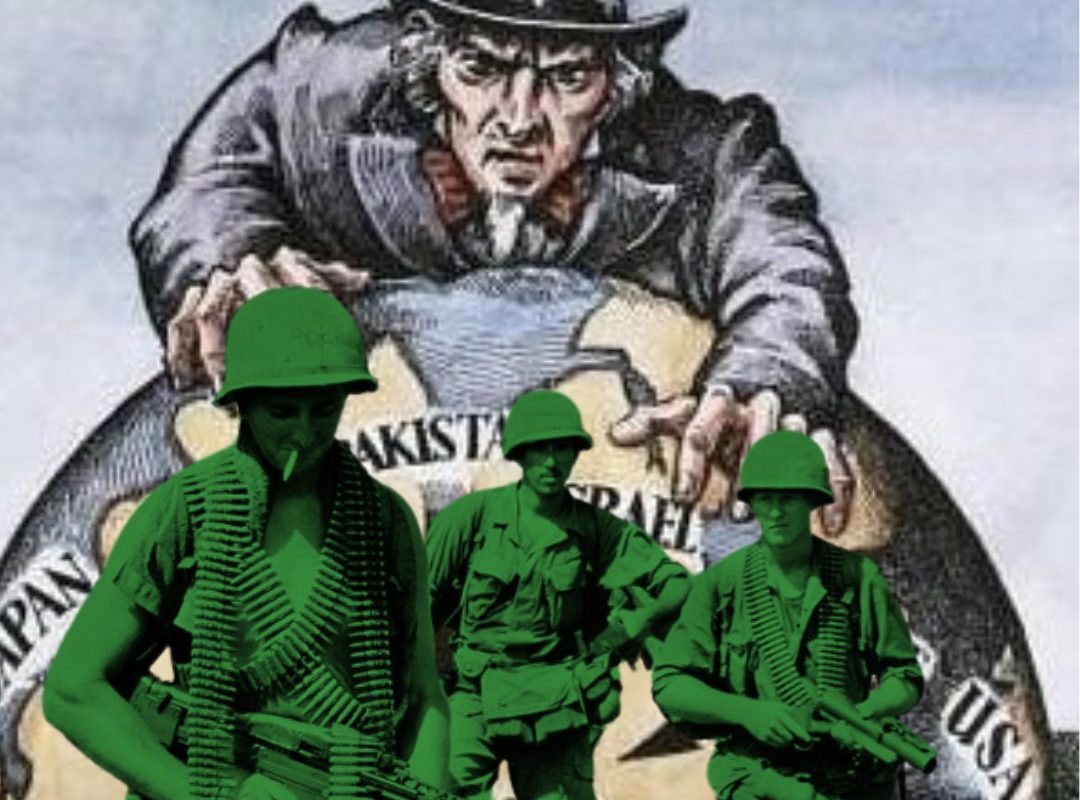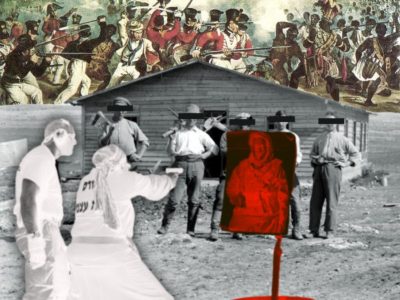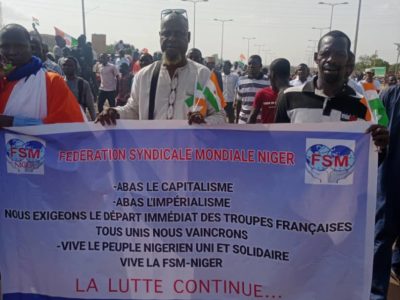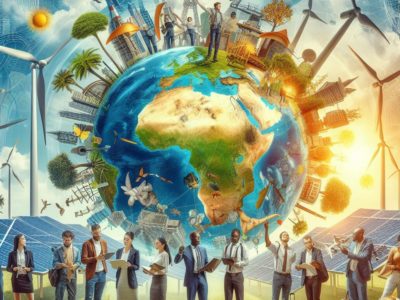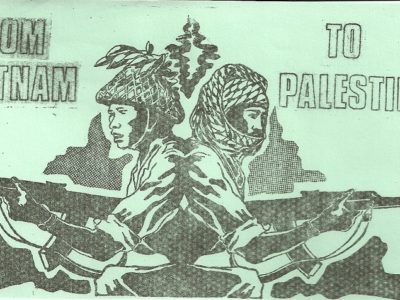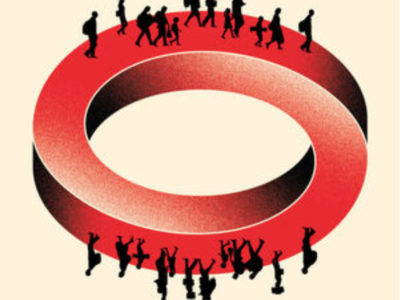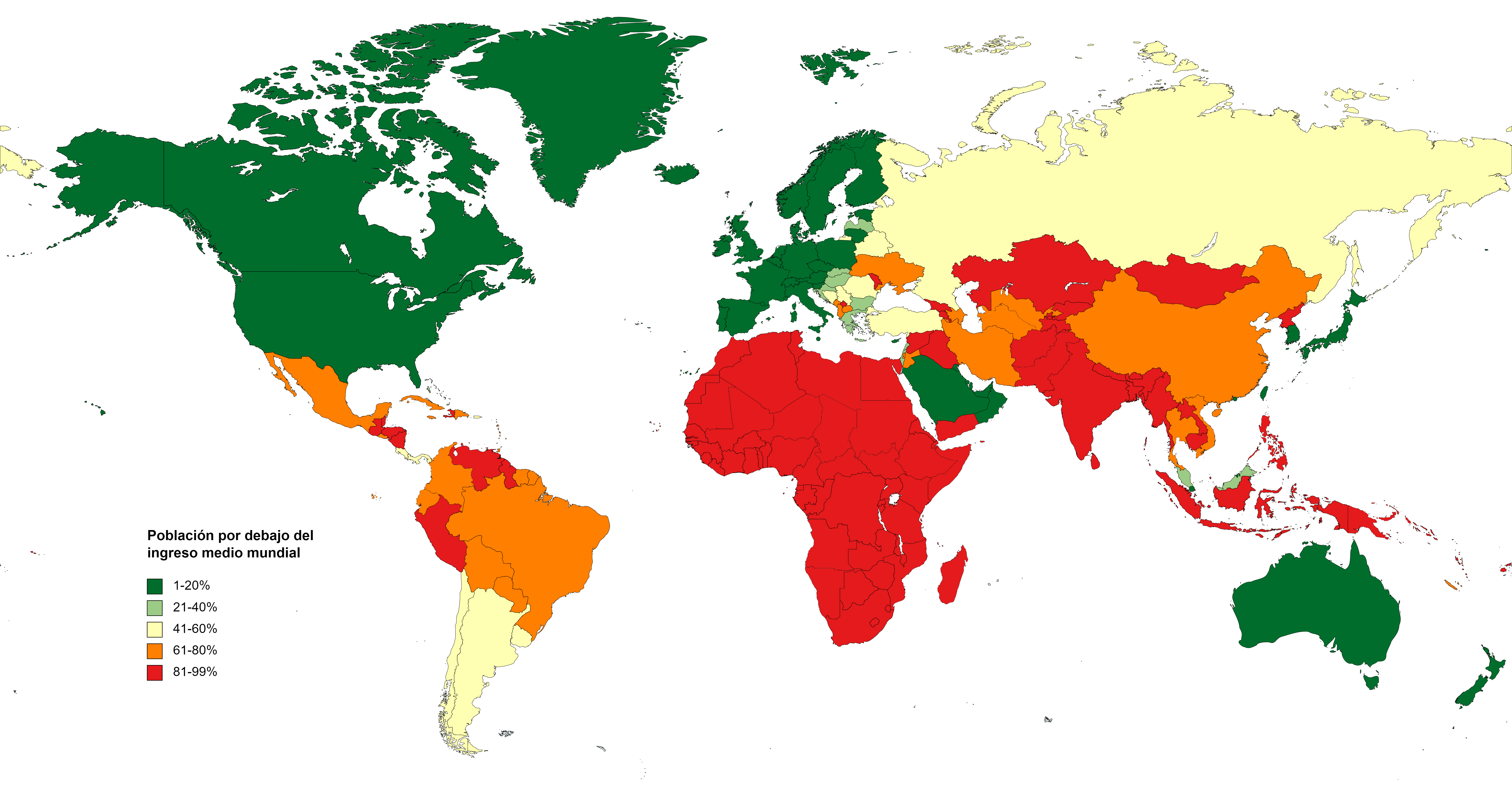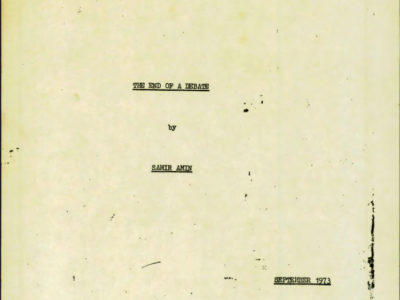By Torkil Lauesen
Intro
Different classes can coexist in apparent balance over long periods of time. At a certain point, however, their relationship becomes incapable of coexistence and the relative calm that characterized their contradiction turns into open conflict. This leads to revolution. Likewise, the contradictions between different nations and imperialist powers can take on antagonistic forms. This leads to war.
Wars are recurring and highly significant events in human history. Enormous economic resources have been used to fight and prepare for wars, and the human as well as material costs have been immense. The war industry has been an important factor in the development of the productive forces. Examples include the production of airplanes, rockets, nuclear power, computers, and the internet. Wars boost production, increase the accumulation of capital, and introduce new relations of production. But wars also destroy existing relations of production and ruin entire countries. The world wars of the twentieth century took precedence over all other contradictions and influenced the world’s development in decisive ways. It mediated the transition from colonialism under British hegemony to neo-colonialism and US hegemony, is opened the window for the Soviet and Chinese revolutions. The two world wars also indicated the globalization of war. In the aftermath of the Second World War, the US established a global net of nearly one thousand military bases to sustain its power. “No beach out of reach” is the slogan of the US Marines.[1] The dissolution of the Soviet Union and the Warsaw pact did not lead to a more peaceful world. The US was keen to consolidate itself as the world’s single superpower, keeping any other competitor down. In that effort, the US expanded NATO and launched at least 251 military interventions between 1991 and 2024, including major wars in the Middle East, Afghanistan, and the Balkans.
In the past years, a new escalation of armament and wars has taken place. The declining US economic power and its attempt to secure unipolar dominance through military means have all come to a head in the current proxy war in Ukraine between the US/NATO and Russia, in a war in the Middle East around the Palestine-Israeli conflict, and in the increasing tensions over Taiwan between the US and China. This has increased the likelihood of global thermonuclear war, which in turn poses the threat of a nuclear winter. This is why the question of war is of ultimate importance for all humans. The smoke from the fires of all the cities burning as a result of an exchange of nuclear missiles would block out solar radiation, lowering temperatures, and resulting in the annihilation of the global population.
War – a form of politics
The German army general, Carl von Clausewitz, in his classic account On War, written from 1816 to 1830, provides the first scientific analysis of war. Clausewitz interpreted war as a test of strength, a violent competition between nations’ material and ideological capacities. He states:
“We say, therefore, war belongs…to the province of social life. It is a conflict of great interests which is settled by bloodshed, and only in that is it different from others. It would be better, instead of comparing it with any art, to liken it to trade, which is also a conflict of human interests and activities; and it is still more like State policy, which again, on its part, may be looked upon as a kind of trade on a great scale. Besides, State policy is the womb in which war is developed, in which its outlines lie hidden in a rudimentary state, like the qualities of living creatures in their germs.” [2]
Then, Clausewitz presents his central thesis:
“War is only a part of political intercourse, therefore by no means an independent thing in itself. … War is an instrument of policy; it must necessarily bear its character, it must measure with its scale: the conduct of war, in its great features, is therefore policy itself, which takes up the sword in place of the pen but does not on that account cease to think according to its own laws.”[3]
In other words, war is not an unfortunate mistake but a rational political instrument:
“We maintain, on the contrary: that war is nothing but a continuation of political intercourse, with a mixture of other means. We say, mixed with other means, in order thereby to maintain at the same time that this political intercourse does not cease by the war itself, is not changed into something quite different, but that, in its essence, it continues to exist, whatever may be the form of the means which it uses, and that the chief lines on which the events of the war progress, and to which they are attached, are only the general features of policy which run all through the war until peace takes place. And how can we conceive it to be otherwise? Does the cessation of diplomatic notes stop the political relations between different nations and Governments? Is not war merely another kind of writing and language for political thoughts? It has certainly a grammar of its own, but its logic is not peculiar to itself.” [4]
War and capitalism
War played a major role in the genesis of capitalism. The medieval European powers were experienced in warfare; feudalism was characterized by countless violent conflicts – “The Hundred Years War, “The Thirty Years War” and so on. European colonialism was based on military power, naval power in particular. No military power outside of Europe could compete. It was Portuguese artillery that created Portuguese dominance in the Indian Ocean, and it was Spanish armor and swords that murdered the Incas and Mayans in America. The British military conquered India in brutal wars, and imperialism opened up China in the Opium Wars. The colonial wars generated the original capital for the breakthrough of industrial capitalism in Europe.
Colonialism and imperialism continued to be an integrated and necessary part of the development of capitalism, as it solved the contradiction between the imperative to extended accumulation and the consumption power of the working class. In The Communist Manifesto, Marx describes this tendency to expansion:
“The need of a constantly expanding market for its products chases the bourgeoisie over the whole surface of the globe….It compels all nations, on pain of extinction, to adopt the bourgeois mode of production…[5]
The colonial empire was a crucial factor in the improvement of living standards in Europe, as consumer goods and raw materials produced by super-exploited labor, fueling the industry were imported. At the same time, the colonies served as foreign territories for investment and as places to relocate, what Marx called the “reserve army of labor,” in settler colonies in North America, Australia, New Zealand, Rhodesia, South Africa, and Algeria. The expansion and upholding of this colonial world-system was dependent on the violent suppression, displacement, or extinction of the original population – war.
War and Imperialism
Just as capitalism has developed since the time of Marx, war has developed since the time of Clausewitz. The development of war reflects in many ways the development of capitalism, both in terms of the productive forces, technology, and the political development of the world-system. Besides the colonial wars of conquest, inter-imperialist struggle intensified. Lenin’s book Imperialism, the Highest Stage of Capitalism, written in 1916, is an explanation of the causes behind World War I. According to Lenin, it was an imperialist war between two rival blocs of industrial capitalist powers vying for spheres of influence, foreign investment, and a redivision of colonial empires. A year earlier, Lenin had read Clausewitz’s book On War, while working on the book Socialism and War. In this Lenin describes how the development of monopoly and finance capital required colonial empires and led to inter-imperialist wars. He writes:
“‘War is the Continuation of Politics by Other (i.e., Violent) Means.’ This famous aphorism was uttered by one of the most profound writers on the problems of war, Clausewitz. Marxists have always rightly regarded this thesis as the theoretical basis of views concerning the significance of every given war.”[6]
Politics is a concentrated expression of economics. The military function is the essential expression of this political concentration.
War and neo-colonialism
If the first part of the twentieth century was characterized by inter-imperial conflict over the spoils of colonialism and who would succeed Britain as the new hegemonic world power, the second part has been characterized by collective imperialism led by the US and with NATO as its armed wing. The wars to uphold US hegemony moved to the Third World, beginning with the Korean War and the wars in Indochina, each costing millions of lives. Up through the 1960s and 70s, imperialist interventions continued in Asia, Africa, and Latin America.
Mao, Lin Piao, Võ Nguyên Giáp, and Che Guevara analyzed the wars of imperialism in the Third World. Lin Piao concluded that anti-imperialist movements had to move from the periphery to the centers of imperialism in a protracted people’s war.[7] Che Guevara wanted the liberation movements to ”create two, three, many Vietnams” with the help of guerrilla war tactics.[8]
Mao, too, referred to Clausewitz:
“‘War is the continuation of politics.’ In this sense war is politics and war itself is a political action; since ancient times there has never been a war that did not have a political character. … But war has its own particular characteristics and in this sense, it cannot be equated with politics in general. … It can therefore be said that politics is war without bloodshed while war is politics with bloodshed.”[9]
Mao also added the concept of contradiction:
“War is the highest form of struggle for resolving contradictions, when they have developed to a certain stage, between classes, nations, states, or political groups, and it has existed ever since the emergence of private property and of classes.”[10]
Mao wrote extensively on war in his articles on guerrilla tactics from the 1930s, among them the text “Problems of War and Strategy” (1938), which includes the famous line, “Every Communist must grasp the truth, ‘Political power grows out of the barrel of a gun.’”[11]
In 1957, Mao also addressed the possibility of nuclear war between the imperialist powers and the socialist bloc:
“People all over the world are now discussing whether or not a third world war will break out. On this question, too, we must be mentally prepared and do some analysis. We stand firmly for peace and against war. But if the imperialists insist on unleashing another war, we should not be afraid of it.” [12]
Mao’s position was interpreted as the cynicism of a leader willing to sacrifice the lives of millions for his political project. But there is also a different interpretation: Mao simply says that if we allow ourselves to be frightened, we have already lost. Mao called US imperialism a “paper tiger.”
“Imperialism and all reactionaries, looked at in essence, from a long-term point of view, from a strategic point of view, must be seen for what they are – paper tigers. On this, we should build our strategic thinking. On the other hand, they are also living tigers, iron tigers, real tigers that can devour people. On this, we should build our tactical thinking.”[13]
Imperialism could be defeated with the courage shown by the people of Vietnam. Weapons were secondary. The most important factor was the human factor; something the Vietnamese general Võ Nguyên Giáp also emphasized and is the experience of many liberation struggles. We must be opposed to war, and should not be adventurous in our actions, but we must not allow ourselves to give in to imperialism’s threats.
War and neoliberal globalization
In 1992, the New York Times published the blueprints for US hegemony after the fall of the Soviet Union, the so-called “Wolfowitz Doctrine”, named after the US Undersecretary of Defence:
“Our first objective is to prevent the re-emergence of a new rival, either on the territory of the former Soviet Union or elsewhere.”[14]
The US supported by its NATO allies, initiated a strategy of regime change to prop up pro-Western governments and naked imperialism in the Balkans by dividing up Yugoslavia, repeated in Iraq, Syria, Libya, and Afghanistan. This was accompanied by the expansion of NATO itself eastward into the former Warsaw Pact countries and regions previously part of the Soviet Union.
The policy left a trail of death across the Middle East. The Palestinian professor in political economy Ali Kadri has described the neoliberal rationale of war in the late twentieth and early twenty-first centuries.[15] The many wars in the Middle East during the last decades have not been an irrational mistake or a waste of money; to the contrary, they have been an integrated and necessary feature of global capitalism.
War means the consumption of weapons and the realization of profit for the military-industrial complex. But, according to Kadri, the act of war itself is also an important feature of the current forms of capital accumulation. Soldiers are war’s labor force. They raise havoc and sow destruction with the goal of establishing global hegemony and controlling the territories that promise the best conditions for capital accumulation.
The wars in the Middle East in more than fifty years are wars over oil, transport routes, and geopolitical power. Controlling the Middle East is an important prerequisite for a successful outsourcing of industrial production to Southeast Asia. The transport route back to the consumers in the Global North runs through the Red Sea and Suez Canal. Low wages are an important factor for the goods produced in Asian sweatshops being cheap and the source of big profits. But the wage level does not exclusively depend on the class struggle in Asia. Wages and prices on the world market are also dependent on the global power relations created (and recreated) throughout history, not least by war. The wars in the Arab world contributed to creating the geopolitical power relations that were necessary for the industrialization of Southeast Asia. In addition, war is also a modern form of primitive accumulation. The Iraqi oil industry, for example, was privatized as a consequence of the wars in the region.
War creates surplus value through the consumption of labor power in the weapon industry, but also through particular forms of labor power: soldiers’ struggle. They use a particular form of tools and technology, namely, arms. They produce the “optimal condition” for the exploitation of “ordinary” labor. Soldiers have short professional careers and sometimes they lose their lives. This means that the consumption of labor power is intensive. The surplus value rate is high. So is exploitation. Soldiers in Syria, Iraq, and Israel, and textile workers in Bangladesh are all integral parts of how capital is accumulated in global capitalism. Wars are cornerstones of the capitalist production order.
From neoliberal globalization to geopolitical confrontation
The neoliberal globalization from the late 70s and onwards changed the world system profoundly. On one hand, the industrialization of the Global South, increased the transfer of value to the North. But on the other hand, the development of the productive forces in the Global South began to turn the table. China became the crank in the global system of production, as an unintended effect of the capitalist desire to exploit the Chinese proletariat. In 2020, China made up 35% of global gross manufacturing production, compared to 12% of the US.[16] In the encounter with neoliberalism, China kept the command of its economy and managed to break two centuries of polarized development between rich and poor countries in the world system.
“The U.S. is the world’s sole military superpower. It spends more on its military than the ten next highest spending countries combined. China is now the world’s sole manufacturing superpower. Its production exceeds that of the nine next largest manufacturers combined.”[17]
This development became a game changer. The US no longer can uphold its hegemony, by neoliberal economic means, which have served them so well for forty years, providing huge profits and cheap commodities for consumers in the Global North. Instead, the US has weaponized economic competition, and turned to political pressure and military means, in a geopolitical struggle for dominance. The US is splitting and eroding the neoliberal world market through trade wars, sanctions, and blockades. In fear of losing its hegemony, the US is strengthening old and making new military alliances, seeking to translate its military power into renewed economic dominance. This strategy results in unparalleled dangers for humanity, in terms of nuclear war and a conflict-haunted world-system, unable to tackle the mounting climate problems.
NATO and the working class in Europe
What has the reaction to this development been in the Western European working class? Contrary to the opposition against NATO installation of Pershing and Cruise missiles in the 80s, the vast majority of the working class in Scandinavia and in Germany support NATO’s current rearmament. In Denmark, even the Unity-List (Enhedslisten) consisting of former communist and “New Left” groups which is the most far-left party in the parliament decided at its congress in May 2022 that NATO membership is the best for Denmark for the time being.[18]
The problem with such a position on NATO is that it identifies with the interests of the Danish state. The narrative is that Denmark is sandwiched between Russian and US imperialism. In that situation, the “gut feeling” of the majority of the population and hence the majority in the “Unity-List” is that “our” – read, the capitalist welfare state – is best protected by a US-led NATO, since our future income depends on this power. All of the Nordic countries are welcoming the establishment of dozens of sovereign US military bases in the next years.
However, Northwest European countries are not innocent “little white lambs” sat between the US and Russia, they are part of the problem – from colonial times to present-day imperialism. You cannot say that it is not our responsibility for what previous generations have done. Colonialism created the structures and institutions that still form the basis for the division of the world into poor and rich countries. Through the “Imperial mode of living”, the population in the North is born into the structure of powers that reproduces itself via imperialism. As long as our lifestyle is based on imperialism, so long will colonialism be our responsibility. With the acceptance of NATO, under the leadership of the US, one buys the whole package. As a member of NATO, one becomes part of US global politics, which seeks to maintain its hegemony with military dominance. NATO membership is not dining a la carte; you get a full course meal. It is no different than the European Social Democrats, who today are repeating the mistakes of voting for rearmament programs, just as they did leading up to the First World War, clearly forgetting the consequences in 1914.
The times, they are a-changing
During his visit to Russia in March 2023, Chinese President Xi Jinping said, “Right now there are changes – the likes of which we haven’t seen for 100 years – and we are the ones driving these changes together.” [19] For the first time in capitalism’s history, the global economic center of gravity is shifting decisively South and Eastward. According to the late Immanuel Wallerstein, hegemony is historically lost in three stages: first it is lost in production, then finance, and in the end, militarily.[20] The US has lost its hegemony in production. Its financial hegemony is challenged by BRICS+, an alternative financial institution to the World Bank and IMF, and the decline of dollars as world money. However, it still retains its military superiority, which is creating a temptation for the US to attempt to overcome the consequences of its economic decline by military means.
There is no military bloc, historical or contemporary, that compares to NATO. It accounts for 74 percent – the US alone being 53 percent – of the world military spending. Russia accounts for 3 percent, and China 10 percent. The United States spends 21 times more on its military per person than China does on its military.[21] The US has 902 bases spread around the globe. The UK supplements with an additional 147 bases. In recent years the US has established what is called NATO+, which includes all but three members of the former Eastern Bloc and Australia, New Zealand, Japan, and the Republic of Korea.
The US has used the Ukraine war to discipline all imperialist countries into its framework, with the goal of keeping world dominance, as stated in the joint declaration on EU-NATO Cooperation published on 9 January 2023:
“We will further mobilize the combined set of instruments at our disposal, be they political, economic, or military, to pursue our common objectives to the benefit of our one billion citizens.”[22]
Closely attached to NATO+ is the Western clone in the Middle East – the Israeli settler state. In his 1896 book The Jewish State, the founder of Zionism, Theodor Herzl, wrote:
“For Europe, we would form part of a bulwark against Asia there, we would serve as the advance post of civilization against barbarism.”[23]
Israel is the largest recipient of US foreign assistance. It was the first international operator of the F-35 Joint Strike Fighter.[24] The vast majority of the bombs, grenades, and missiles targeted against Gaza come from the US. The US provides political and military support for Israel to control the Middle East. By doing this, the US aim is to block China’s increasing integration and influence in the region, as well as any form of Global South long-lasting cooperation.
The countries in the Global South are highly diverse and heterogeneous, and they have no military alliances. What they have is a shared history of colonialism and imperialist exploitation, and hope of development alongwith the realization that the Western capitalist model is fading rapidly. The tide is changing. China, the world’s leading industrial producer, with 1.4 billion people, is consolidating its socialist project. For the first time in 200 years, a periphery country has economically broken through the hegemony of the imperialist countries. Even without China, the economies of the Global South had surpassed the Global North by 2022 with their respective shares of the global economy at 41% and 40.6%. While the Third World in the 1970s demanded a “New International Economic Order” in vain, the economic development of the Global South has enabled them to build it. BRICS+, BRI, and ALBA are stepping stones in the creation of a new world order. For the time being the Global South is pursuing:
- Multilateralism: Instead of US hegemony, the Global South wants a multipolar world system, with the United Nations as the primary international institution and without reliance on platforms provided by the Global North countries.
- New Modernisation: Instead of the Western “development perspective” offered since the end of the Second World War, leading to nothing but increased poverty, the Global South is building regional South-South economic integration.
- De-dollarisation: Instead of trading, investing, and lending in US dollars, the Global South wants to use local currency and regional common currencies.
- Innovation led by the Global South: Instead of intellectual property monopolies in areas like medicine, new energy, and information technology, the Global South is promoting open and shared technological innovation.
- Debt Resolution: Instead of the debt trap imposed by imperialist countries, the Global South demands collective negotiations for reductions and compensations, and is building its own financial and banking institution for future investments.
- Information, media and digital Sovereignty: Instead of the Western-dominated information, media, and digital platforms, the Global South wants to control its own digital spaces in hardware, software, and content.
- Environmental Justice: Instead of green capitalism, the Global South demands that the imperialist countries compensate for their long-term cumulative pollution, and not leave the “bill” to the ones that have been robbed.
The shift from the “Third World” to the “Global South” of the 21st century has developed a confident mood, based on economic and political strength. They have refused NATO’s narrative of a “ruled base” world order, and are accusing the West of using ‘double standards’ to justify its own wars while decrying the wars of others. Even “capital” has taken notice of what is going on. Credit Suisse describes how:
“The global West (Western developed countries and allies) has drifted away from the global East (China, Russia, and allies) in terms of core strategic interests, while the Global South (Brazil, Russia, India, and China and most developing countries) is reorganizing to pursue its own interests”.[25]
The Global North Pushing the World Towards War
The rise of the Global South poses an economic challenge to imperialist world dominance. This is why the Eurasia pivot axis, running from Ukraine in the north to Palestine in the south, is now the center stage for confrontation.
Before the dissolution of the Soviet Union, the US and EU had promised Gorbachev that NATO would not expand eastward. However, NATO did not keep its promise, and admitted 14 new member states, including several former Soviet Republics. In 1997 Zbigniew Brzezinski, the architect of U.S. foreign policy, published The Grand Chessboard: American Primacy and Its Geostrategic Imperatives. Here, he states that by the dissolution of the Soviet Union, the United States emerged “not only as the key arbiter of Eurasian power relations but also the sole and, indeed, the first truly global power.” To maintain that position the U.S. had to arrest the process of EU-Russian integration. Ukraine became an “important space on the Eurasian chessboard”—to domesticate and control Russia. By including Ukraine in the US-sphere, Brzezinski wrote, the US would not only create the geopolitical and geostrategic conditions for the final overpowering and forced breakup of the Russian Federation, but also enhance “its growing economic interest…in gaining unlimited access to this hitherto closed area.”[26]
Hence in 2014, the US backed the Maidan color revolution and coup in Ukraine against the elected president Viktor Yanukovych. This led to a civil war between the new government of Ukrainian nationalists, and Russian-speaking separatists in the Donbas region, supported by Russia. In 2018 the US announced that Ukraine was a prospect to join NATO. If so, NATO could deploy nuclear weapons a few hundred kilometers from Moscow, which would give NATO a first-strike capability, constituting a direct military threat to Russia. An obstacle for the US plan could be, as Brzezinski warned:
“The most dangerous scenario would be a grand coalition of China, Russia, and perhaps Iran… not out of a sudden love for one another but out of a shared opposition to the predominant power (the US)”.[27]
In 2022, after NATO continually ignored Russia’s “red lines”, it intervened on the side of the separatists, and the conflict escalated into a proxy war between NATO and Russia on Ukraine soil. Since then, the stakes have been raised continuously on both sides.
The current US geopolitical goal is to obtain regime change in Russia and China, and if possible, slice them into several small countries, to ensure they cannot challenge US military or economic hegemony. The war in Ukraine is intended to do the job in Moscow. Beijing is to be pinned down through a network of military alliances, the expansion of NATO’s role in Asia, alongside trade wars, technological restrictions, and pushing to internal conflicts in China like Taiwan, Hong Kong, and Xinjiang. The war in Ukraine, around Palestine, and the threatening attitude of the US toward Beijing over Taiwan have again brought the issue of nuclear exchange to the forefront of world concern.
So, what is to be done?
What does this mean for those of us who live in the imperial core? First, we must realize that “the end game” of the current world order is on, and it is a dangerous epoch. The US is still the dominant aspect in the global contradiction, but the South is on the offensive, encircling the center. While the transformative power of the Third World, in the 60s and 70s, was based on the “revolutionary spirit” – the attempted ideological dominance over the economic development – the current transformative power of the Global South, is based on its economic strength. The global South has the capacity to arrest the flows of imperial extraction that have sustained the current world order, and they have the capacity to build a new one.
Just as the Soviet Union, by balancing imperialism, made decolonization possible, China balancing the US. can create space for movements and nations struggling for socialism. To avoid the collapse of capitalism into a chaotic abyss, a strong China will be of decisive importance, for a transformation to socialism. The support for a multi-polar world system does not imply avoiding criticism of reactionary tendencies within the BRICS states. On the contrary, we should support the struggle against oppression and exploitation in any BRICS country, because broad popular support for a new socialist world order is an essential condition for its success.
There is not and has never been any “pure” socialism in the world – it is not possible, as capitalism until recently has been a vital and dominating force in the world system. Socialism is still a project under construction, and the first step is to cut loose from the shackles of capitalism – US hegemony.
We in the Global North will not be the driving force in this preliminary phase. However, we should not be passive bystanders, waiting for the proletariat in the Global South to create a revolutionary situation in our part of the World. We must make sure that the North is no safe “hinterland” for imperialism, which means struggling against right-wing nationalism, racism, and most importantly against imperialist military intervention. We must support popular struggles in the Global South for equality in terms of class, race, and gender, which means support for explicit socialist movements. Not only in words, but in deeds, and by material means.
Anti-imperialists in the North will a minority, but an important minority. The migrant workers in Europe can be an anti-imperialist Trojan Horse within the Global North. Because of their position in production and service, they are not powerless, and their affiliation with family, and hope for the economic development of their homeland in the Global South, may be stronger than their loyalty to a state that barely tolerates their stay. The solidarity movement with the Palestinian struggle is a current example.
The US/NATO alliance constitutes a threat to humanity via a World War with the use of nuclear arms. The answer to the threat lies in a shift away from a dying capitalism towards a global socialism. The endgame will be dramatic and dangerous: it is not a “tea-party.” We should be prepared for this, on the personal and the organizational level. How will the global struggle develop in the next 2 to 5 years? What should our strategy be? How can I, and my organization, fit into the analysis of the objective and subjective forces of transition? What kind of support can we deliver?
Sources
[1] All Hands, Magazine of the U.S Navy. Online: No Beach Out Of Reach > U.S. Navy – All Hands > Display Story
[2] Clausewitz, Carl von (1832), On War. Book 2, Chapter 3. Princeton University Press. New Jersey 1989. Online: clausewitz.com
[3] Clausewitz, Carl von (1832), On War. Book 8, Chapter 6B. Princeton University Press. New Jersey 1989. Online: clausewitz.com
[4] Clausewitz, Carl von (1832), On War. Book 8, Chapter 6B. Princeton University Press. New Jersey 1989. Online: clausewitz.com
[5] Marx, Karl & Engels, Frederich (1848) The Communist Manifest. In: Marx/Engels Selected Works, Volume I. page 12–13: Progress Publishers Moscow 1969.
[6] Lenin V.I (1915), Socialism and war. Chapter I, The Principles of Socialism and the War of 1914–1915. In Lenin: Collected Works, Volume 21, pages 295-338. Foreign Languages Press, Peking 1970.
[7] Piao, Lin (1965) Long Live the Victory of People’s War! Foreign Languages Press, Peking 1965.
[8] Che Guevara, Ernesto (1966), Message to the Tricontinental Conference, in January 1966. Tricontinental Magazine no. 2 April 16, 1967. Havana, Cuba 1967.
[9] Mao Tse-tung (1938) On Protracted War In: Selected Works of Mao Tse-tung, Vol. II, page 152-53. Foreign Languages Press, Beijing 1969. marxists.org
[10] Mao Tse-tung (1936) Problems of Strategy in China’s Revolutionary War. In Mao: Selected Works, Vol. I,
page 180. Foreign Languages Press, Beijing 1969. marxists.org
[11] Mao Tse-tung (1936) Problems of War and Strategy. In Mao: Selected Works, Vol. II, p. 224. Foreign Languages Press, Peking1969. marxists.org
[12] Mao Tse-tung (1957) On the Correct Handling of Contradictions Among the People. In Mao: Selected Works, Vol. V, p. 417. Foreign Languages Press, Beijing 1969. marxists.org
[13] Tse-tung, Mao (1958) Speech at the Wuchang Meeting of the Political Bureau of the Central Committee of the Communist Party of China’, in Selected Works of Mao Tse-Tung, vol. IV, page 98–99. Foreign Languages Press, Beijing: 1958. Online: https://www.marxists.org.
[14]Tyler, Patrick E. (1992) U.S. Strategy Plan Calls for Insuring No Rivals Develop,” New York Times, March 8, 1992.
[15] Kadri, Ali (2018) The Cordon Sanitaire, a single law governing Development in the East Asia and the Arab World. Palgrave Macmillan. Singapore 2018.
[16] Baldwin, Richard (2024) China is the world’s sole manufacturing superpower: A line sketch of the rise. Online: China is the world’s sole manufacturing superpower: A line sketch of the rise | CEPR
[17] Baldwin, Richard (2024) China is the world’s sole manufacturing superpower: A line sketch of the rise. Online: China is the world’s sole manufacturing superpower: A line sketch of the rise | CEPR
[18]Enhedslisten (2022) Online: Enhedslisten laver historisk Nato-opblødning | Netavisen Pio (piopio.dk)
[19] Kollmeyer, Barbara (2023) ‘“Right Now There Are Changes, the Likes of Which We Haven’t Seen in 100 Years.” Here’s What China’s Xi Said to Putin before Leaving Russia’, Market Watch, 22 March 2023, https://www.marketwatch.com/story/right-now-there-are-changes-the-likes-of-which-we-havent-seen-in-100-years-what-china-president-xi-said-to-putin-before-leaving-russia-d15150ce
[20] Wallerstein, Immanuel (1984) The Three Instances of Hegemony in the History of the Capitalist World-Economy’, ed. Lenski, Current Issues and Research in Macrosociology, 1 January 1984, 100–108, https://doi.org/10.1163/9789004477995_008
[21] SIPRI (2023) Military Expenditure Database. https://www.sipri.org/databases/milex/frequently-asked-questions#PPP
[22] Stoltenberg, Jens, von der Leyen, Ursula and Michel, Charles (2023) Joint Declaration on EU-NATO Cooperation, North Atlantic Treaty Organisation, 10 January 2023, https://www.nato.int/cps/en/natohq/official_texts_210549.htm.
[23]Herzl, Theodore (1896), The Jewish State. Online: https://www.jewishvirtuallibrary.org/quot-the-jewish-state-quot-theodor-herzl
[24] M. Sharp, Jeremy M (2023) US Foreign Aid to Israel, Congressional Research Service, 1 March 2023, https://crsreports.congress.gov/product/pdf/RL/RL33222/
[25] Credit Suisse (2023) Investment Outlook 2023: A Fundamental Reset. Page 14. Credit Suisse, Zürich 2022. Online: www.credit-suisse.com,
[26] Brzezinski, Zbigniew (1997) The Grand Chessboard. page 46-51, 92-96, 103, 209. Basic Books. New York: 1997
[27] Brzezinski, Zbigniew (1997) The Grand Chessboard. Page 55; 30–31. Basic Books. New York 1997.

